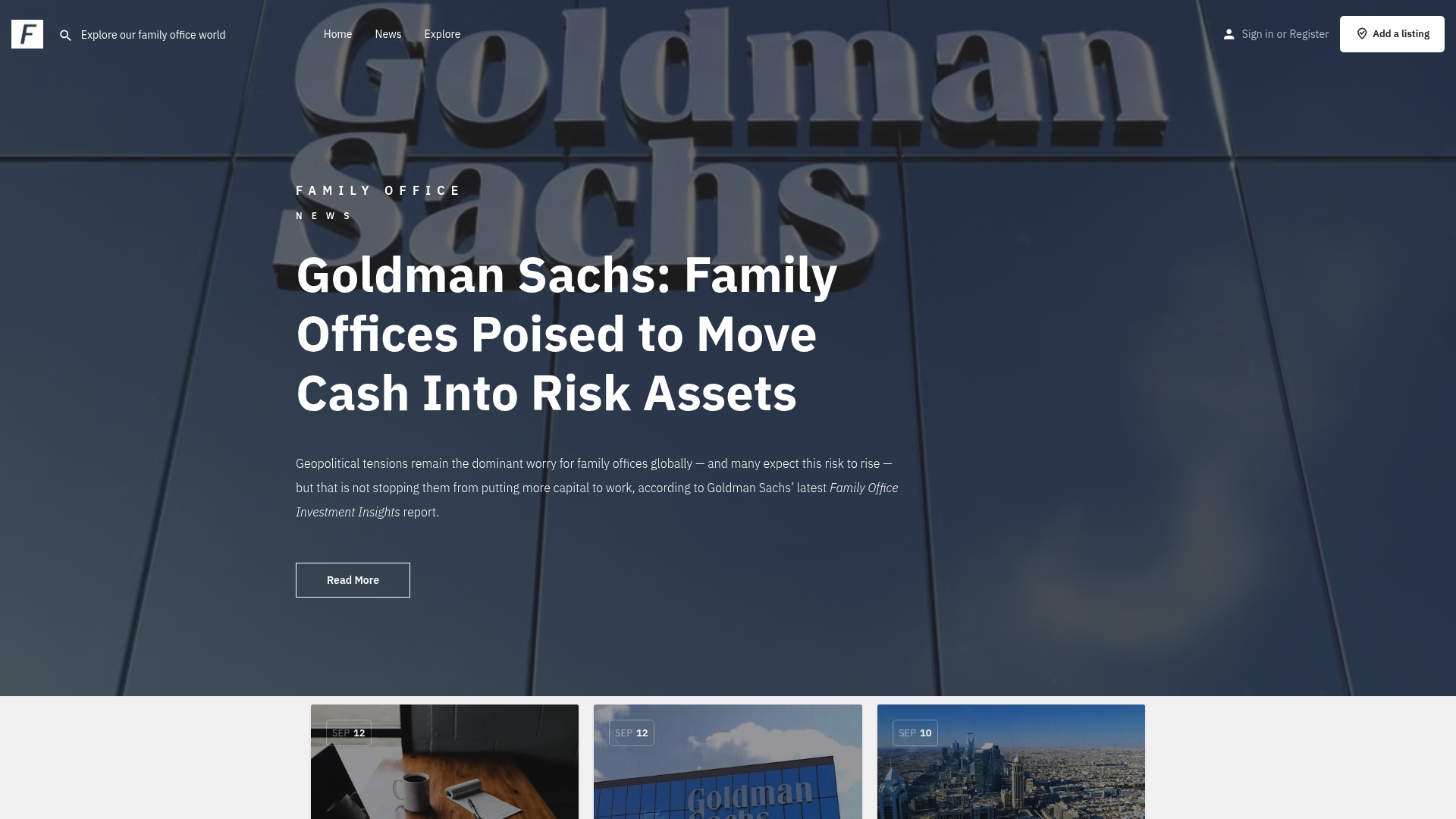Digital assets are redefining how wealthy families manage their investments, with 57% of family offices now betting on blockchain technologies to transform their portfolios. This shift matters because the rise of cryptocurrencies, NFTs, and tokenized securities brings new risks and legal challenges that can make or break generational wealth. As digital wealth expands, understanding the different types of assets, security protocols, and compliance hurdles becomes crucial for family offices looking to stay ahead of the financial curve.
Table of Contents
- Defining Digital Assets In Family Offices
- Types Of Digital Assets Managed Today
- Operational Processes And Integration Strategies
- Regulatory Compliance And Tax Implications
- Security, Custody, And Risk Management
Key Takeaways
| Point | Details |
|---|---|
| Emerging Digital Asset Class | Family offices are increasingly incorporating digital assets like cryptocurrencies, NFTs, and tokenized securities into their investment portfolios as a strategy for wealth diversification. |
| Legal and Regulatory Challenges | The classification and management of digital assets present complex legal issues, necessitating updated compliance and risk management strategies. |
| Operational Integration | Successful integration of digital assets requires robust cybersecurity measures, real-time portfolio tracking, and advanced technological frameworks for operational efficiency. |
| Security and Risk Management | Family offices must employ comprehensive security protocols and adaptive risk management strategies to protect their digital assets from evolving threats. |
Defining Digital Assets in Family Offices
Digital assets represent an emerging and complex category of wealth that family offices are increasingly incorporating into their investment strategies. According to research from arXiv, these assets challenge traditional property law concepts due to their intangible nature, requiring sophisticated legal and financial frameworks for proper management.
Digital assets encompass a broad spectrum of electronically stored value and rights, including cryptocurrencies, non-fungible tokens (NFTs), digital securities, tokenized real-world assets, and intellectual property rights stored on blockchain platforms. Unlike traditional financial instruments, these assets exist purely in digital form and often operate outside conventional regulatory structures, presenting unique opportunities and risks for family offices.
The legal landscape surrounding digital assets remains intricate and evolving. arXiv highlights critical challenges in classifying these assets, particularly concerning ownership, transfer, and inheritance rights. Family offices must develop robust strategies that address:
- Technical storage and security protocols
- Comprehensive digital asset management systems
- Advanced cybersecurity infrastructure
- Compliance with emerging regulatory frameworks
- Risk mitigation strategies specific to digital asset classes
Ultra-high-net-worth families are recognizing digital assets not just as speculative investments, but as strategic components of a diversified wealth preservation strategy. Understanding Single Family Office resources can provide additional context for how sophisticated investment vehicles adapt to these technological innovations, ensuring families remain at the forefront of financial evolution.
Types of Digital Assets Managed Today
Family offices are increasingly diversifying their investment portfolios by incorporating a sophisticated range of digital assets.
Wikipedia defines digital assets as encompassing a wide spectrum of digital content, including documents, audio, motion pictures, software, photography, logos, illustrations, animations, and various digital media formats with associated metadata.
Digital asset classes now managed by family offices include several key categories:
- Cryptocurrencies: Bitcoin, Ethereum, and alternative digital currencies
- Tokenized Securities: Digitally represented financial instruments
- Non-Fungible Tokens (NFTs): Unique digital collectibles and art
- Digital Intellectual Property: Copyrights, patents, and digital rights
- Blockchain-Based Assets: Decentralized financial instruments
According to Wikipedia, asset tokenization represents a groundbreaking approach where traditional and digital assets can be transcribed into blockchain-based digital tokens. This process enables fractional ownership, increased liquidity, and broader investment accessibility for ultra-high-net-worth families. By converting tangible and intangible assets into tradable digital representations, family offices can create more flexible and dynamic investment strategies.
Navigating this complex digital landscape requires sophisticated technological infrastructure and deep understanding of emerging market dynamics. Why Diversify Assets resources can provide additional insights into how family offices can strategically integrate these innovative digital asset classes into their comprehensive wealth management approach.
Operational Processes and Integration Strategies
Integrating digital assets into family office operations demands a sophisticated and strategic approach. According to Deloitte, 43% of family offices are actively developing or implementing comprehensive technology strategies focused on improving operational efficiency, reducing costs, and enhancing decision-making capabilities.
The operational framework for digital asset management typically encompasses several critical components:
- Advanced cybersecurity infrastructure
- Robust compliance monitoring systems
- Real-time portfolio tracking mechanisms
- Integrated risk management protocols
- Sophisticated data analytics capabilities
Stackademic highlights that successful digital asset integration involves navigating complex security risks and compliance challenges while maintaining traditional investment structures. Technological adaptation becomes crucial, requiring family offices to develop flexible technological ecosystems that can seamlessly incorporate blockchain-based assets, tokenized securities, and emerging digital investment vehicles.
Technology plays a transformative role in this process.
 Alternatives Investment Benefits resources can provide additional insights into how cutting-edge technological solutions enable family offices to transform digital asset management from a niche strategy into a core component of sophisticated wealth preservation and growth strategies.
Alternatives Investment Benefits resources can provide additional insights into how cutting-edge technological solutions enable family offices to transform digital asset management from a niche strategy into a core component of sophisticated wealth preservation and growth strategies.
Regulatory Compliance and Tax Implications
Navigating the complex regulatory landscape of digital assets represents a critical challenge for family offices. According to arXiv, jurisdictions worldwide are developing varied approaches to defining and regulating digital assets, creating a complex legal environment that demands sophisticated understanding and strategic navigation.
Key regulatory considerations for digital asset management include:
- International tax reporting requirements
- Cross-border transaction compliance
- Anti-money laundering (AML) protocols
- Know Your Customer (KYC) verification processes
- Securities regulation adherence
- Capital gains tax implications
Forbes reveals that 57% of family offices believe blockchain technologies will fundamentally transform investment strategies, underscoring the importance of developing robust compliance frameworks. This requires continuous monitoring of evolving regulatory landscapes and proactive adaptation of technological and legal infrastructure.
For family offices seeking to develop comprehensive digital asset strategies, Family Office Compliance Checklist resources can provide critical guidance in managing the intricate legal and tax complexities inherent in digital asset investments.
Security, Custody, and Risk Management
Managing digital assets requires an unprecedented level of security and sophisticated risk management strategies for family offices. Comprehensive security frameworks must address multiple layers of potential vulnerabilities, from technological infrastructure to human error and external threats.
Critical security components include:
- Multi-signature wallet protocols
- Cold storage solutions
- Advanced encryption technologies
- Robust authentication mechanisms
- Regular security audits
- Comprehensive incident response plans
- Continuous monitoring systems
Risk management for digital assets goes beyond traditional investment protection strategies. Family offices must develop adaptive approaches that combine technological solutions with human expertise. This involves creating redundant security layers, implementing zero-trust security models, and developing comprehensive recovery and contingency protocols for potential digital asset compromises.

7 Essential Tax Planning Tips resources can provide additional insights into developing holistic risk management approaches that protect both the technological infrastructure and financial investments associated with digital assets. Successful digital asset custody requires a proactive, multilayered strategy that anticipates and mitigates potential security challenges before they emerge.
Mastering Digital Asset Management with Future Family Office
Managing digital assets within family offices presents unique challenges such as navigating complex regulatory landscapes, ensuring robust cybersecurity, and integrating innovative investment vehicles like NFTs and tokenized securities. These demands require tailored strategies that combine advanced technology with expert insight to protect wealth and seize new opportunities in a rapidly changing environment. If you are aiming to enhance your family office operations and stay ahead in digital asset management, a reliable network and comprehensive resources are essential.

Take control of your digital asset future today by connecting with industry leaders and accessing specialized tools at Future Family Office. Explore expert insights on Why Diversify Assets and strengthen your compliance and security frameworks using our Family Office Compliance Checklist. Visit https://futurefamilyoffice.net now to unlock strategic growth and protection in your wealth management journey.
Frequently Asked Questions
What are digital assets?
Digital assets encompass a wide range of electronically stored value and rights, including cryptocurrencies, non-fungible tokens (NFTs), digital securities, tokenized real-world assets, and intellectual property rights stored on blockchain platforms.
How are family offices integrating digital assets into their investment strategies?
Family offices are incorporating digital assets by developing sophisticated investment portfolios that include cryptocurrencies, NFTs, and tokenized securities, recognizing them as strategic components for wealth preservation and diversification.
What are the key security considerations for managing digital assets?
Critical security considerations include implementing multi-signature wallet protocols, utilizing cold storage solutions, employing advanced encryption technologies, conducting regular security audits, and ensuring comprehensive incident response plans are in place.
What regulatory challenges do family offices face with digital assets?
Family offices must navigate complex regulatory considerations that include international tax reporting requirements, compliance with anti-money laundering (AML) protocols, Know Your Customer (KYC) processes, and adherence to securities regulations.
Recommended
- Optimize Your Family Office Investment Workflow Efficiently – Future Family Office
- 8 Strategies for Successful Family Offices in New York – Future Family Office
- 10 Essential Wealth Management Tips for Investors – Future Family Office
- Understanding Why Diversify Family Office Portfolio – Future Family Office




